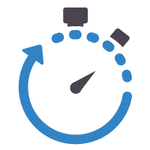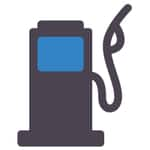What is Consumer Behaviour
Consumer Behaviour- In marketing, consumer behaviour refers to the actions and decisions that people make when purchasing or using products. Consumer behaviour toward a product encompasses everything from the initial purchase decision to how they use it and whether or not they continue to buy it in the future. Consumer behaviour professionally studies the factors that influence consumer choices or purchases. Family influence, personal or religious beliefs, cultural choices, and status symbols can affect this psyche.
In fact, these are also constantly evolving and changing making it possible for businesses to earn or lose fortunes in a short span of time. It is essential for corporates to do detailed consumer behaviour analysis before and after they release products into markets. This helps them understand/develop suitable products, and modify existing products to meet changing consumer tastes. One of the crucial aspects of modern marketing for businesses is to understand and empathise with their consumers. With a lot of technology and modern tools available, consumer behaviour and related areas are flourishing with increased demand.
Consumer Behaviour: Degrees and levels
Consumer behaviour certificate programmes and diplomas: These are offered in various online and offline modes by institutions across the world. Few courses available are
Marketing Research and Consumer Behaviour | Consumer Analytics |
Consumer Psychology | Post Graduate Certificate Programme in Sales & Marketing Communication |
An Introduction to Consumer Neuroscience and | Diploma in Marketing Management |
Neuromarketing | Advanced Programme for Marketing Professionals |
Undergraduate course: There is no direct consumer behaviour undergraduate course. Students can pursue courses of their interest in undergraduate studies. Depending on their own choice they want to pursue, they can choose economics, management, biology, computer science, psychology-based courses. These programmes include:
- Bachelors of Commerce (B.Com) Marketing
- Bachelor of Business Administration (BBA)
- Bachelor of Business Management
Consumer behaviour masters course: Masters level programmes in management, prominently MBA offer consumer behaviour as a course under study. Taking up marketing specialisation allows students to explore consumer behaviour more deeply than other specialisations.
Research programmes: Research-based programmes within marketing allow candidates to pursue a detailed study of consumer behaviour. They can either pursue it under the scope of management or through interdisciplinary studies with psychology, economics, neuroscience disciplines. The study can be experimental or analytical. PhD, MS (Research) and M. Phil are common research avenues.
Consumer Behaviour: Minimum and Maximum Duration
Certificate programmes have a minimum duration ranging from a few weeks to a few months. Online course certifications are usually five weeks to three months long. Diploma programmes can be a minimum of a one-year (12 months) duration. Bachelor's programmes are generally of three years’ or 36-month duration. Bachelor’s with honours in consumer behaviour may take five years.
Masters programmes can be of 12 months or 24 months duration. An MBA, especially, spans over 24 months. PhD in most institutions takes a minimum of three years i.e. 36 months to complete.
The maximum duration is generally specific to individual institute policies. Bachelor's programmes can usually be extended to 5 years. At the masters level, the maximum duration can last up to 4 years, particularly in case of distant mode programmes. The maximum duration of a PhD programme in 6 years. Certificate programmes and MOOCs can not be extended beyond the specified duration.
Eligibility Criteria (UG & PG) of Consumer Behaviour
Certificate and diploma programmes are mostly open to everyone. A few certificate programmes can be restricted to only professionals with significant experience in the field. Qualifications differ for various undergraduate programmes; however, as per the minimum eligibility criteria, candidates must complete class 12 with at least 50 per cent marks.
Masters in consumer behaviour eligibility criteria is a minimum of 55 per cent marks at the undergraduate level. Further, a 5 per cent relaxation in marks secured at bachelors level is provided for students from the SC/ST/OBC (Non-creamy layer) backgrounds or those who are differently-abled. Admissions to PhD programmes have an eligibility criterion of a minimum of 55 per cent marks in a masters programme or in a post-graduate diploma.
Admission Criteria for Consumer Behaviour Courses (after class 12)
Although one cannot study consumer behaviour separately at the undergraduate level for BBA admission, all he needs to have is a passing grade/percentage in 10+2 level from a recognised board. He can be from any stream- arts, science or commerce to take up business studies at the undergraduate level.
To get admission in a B-school offering MBA Marketing or MBA Consumer Behaviour, a candidate has to have an undergraduate degree in any discipline, a minimum of 50 per cent marks in graduation, and a valid score in one of the entrance examinations that are conducted either by the particular management institute or a central body of management studies. After the entrance exam, the successful candidates are called for group discussion and personal interview rounds, qualifying which they are allowed admission in their institute of choice.
For taking admission in a professional certificate course in Consumer Behaviour, a person must have relevant years of work experience and passing grades in graduation in any stream.
Entrance Examinations for Consumer Behaviour Courses
Certificate courses do not have entrance exams. In the case of programmes with limited seats, a formal application followed interview processes may be applicable. Admission to undergraduate programmes depends on university/institution. Most management and commerce degree programmes at this level do not have entrance exams. Post Graduate and doctoral programmes have entrance exams. The common ones are the Common Aptitude Test (CAT), GRE, GMAT, GATE and UGC-NET/JRF. These exams test general aptitude, quantitative aptitude, data interpretation and verbal and logical reasoning of the applicants. These need adequate preparation for one to crack the exams and are generally highly competitive.
Fees and Expenses of Consumer Behaviour Courses
Consumer behaviour certificate courses can have varying fees starting from Rs. 1000/- for introductory courses to Rs. 2,30,000/- for advanced courses.
Undergraduate Level: Fee structure at bachelors level can range from. Rs. 8000/- to Rs. 9,00,000/- for three years programme.
Masters Level: Masters programmes in Management are among the most expensive. These can cost between Rs. 90,000/- to 30,00,000/-. Specialised programmes can cost as much as Rs. 30,00,000 for one year of study.
Research and Doctoral Levels: Research programmes generally have fewer fees as compared to academic programmes. Most institutions do not have tuition fees for PhD programmes and also give generous stipend raining from Rs. 30,000/- to Rs. 35,000/- per month to scholars. However, research masters and PhD practice programmes have fees raining between this can range from Rs. 20,000/- to Rs. 9,00,000/-.
College Predictors VIEW ALL
Scope of Consumer Behaviour in India and Abroad
Consumer behaviour scope in India and abroad is very promising. India being a country with a large number of potential consumers with diverse socio-cultural-economic backgrounds, consumer analysis has become an essential practice for any business here. There is a growing need for businesses to understand different nuances of their consumers especially when they try to enter niche goods markets, or when they bring in new products. Moreover, as many international companies try to enter the lucrative Indian market, they need qualified professionals across who can help them understand these different market characteristics and consumer motivations.
In the overseas market too, there is a huge demand for people with knowledge of consumer behaviour. Following are the few booming economies (excluding India) that are witnessing high market values and hence, have a great scope for consumer behaviour analysis:
Denmark
Hong Kong
Ireland
Sweden
The United Kingdom
One can find profiles in both corporate, production houses, marketing, sales and public relations agencies, globally. It is important to understand that it is not only traditional products that need consumer behaviour study. Services, technology and software products, financial institutions and even non-governmental organisations need insights that a consumer behaviour analysis can provide them.
Students also liked
Course Subjects
Core consumer behaviour curriculum consists of the following subjects.
| Consumer behaviour (CB) theories | Market segmentation |
| Neuroscience and CB | Models of CB |
| CB and technology | Family, social and developmental influences on B |
| Cultural conditioning of CB | Communication and persuasion |
| Consumer-based marketing strategies | Marketing Strategies |
Quantitative and methods that are useful for consumer behaviour
Research methods
Statistical techniques
Data analytics
Modelling consumer choices
Data collection and analysis
Other subjects that are useful for consumer behaviour
Behavioural economics
Cross-cultural marketing
Nudge and behavioural change
Careers in Consumer Behaviour
Consumer behaviour jobs range from independent research to top-level advertising and marketing. There is a wide breadth of opportunities available in the corporate sector. One will find his fit in many traditional marketing roles along with emerging consumer research roles. There is also scope in the research and consultancy sector which undertake consumer analysis for different organisations. Almost all corporates have an in-house marketing department that depends on consumer behaviour analysis.
Following are some of the areas where individuals passing from B-school with a degree or diploma in consumer behaviour course can expect to find jobs:
| Traditional marketing | Market analysis |
| Business development | Strategic management |
| Digital marketing (including social media marketing and content marketing) | Regulatory policymaking |
Job profiles that require a strong understanding of consumer behaviour are explained later in this article, in detail.
Upcoming trends
Major upcoming trends in consumer behaviour can be outlined as follows:
Neuroscience and consumer behaviour: This examines how neurological factors play a role in consumer choices. It uses studies of the brain, consciousness, sensory perceptions and their interaction in complex ways to generate particular behavioural outcomes.
Behavioural economics: This examines the effects of psychological factors that affect economic decision making and thereby influence consumer preferences.
Data Science and Artificial Intelligence: These involve the use of artificial intelligence to study vast amounts of data generated from different online activities and offline data collection. Data science can help to analyse impressive amounts of behavioural data and generate powerful insights that can aid marketing and decision making. AI can study even the most sensitive changes and forecast alternate scenarios that are possible. Data Science and AI are among the most important consumer behaviour trends that will shape the future of the discipline.
Cross-cultural and political trends: The age of MNCs has made it necessary for corporates to be aware of the impacts of political and cultural factors on consumer behaviour. A good understanding of geo-politics can help these companies in developing products and adopting appropriate strategies in different locations.
Consulting: Consumer behaviour consulting is an emerging trend as many businesses tend to outsource consumer behaviour analysis to reputed consultancies. Startups, small and medium scale businesses, NGOs also rely on consultants and advisors to conduct consumer analysis.
Job Profiles and Top Recruiters
A business administration graduate or postgraduate having Marketing specialisation or a fresher from a CB institute can expect to start a career in the corporate sector in any of the below job profiles:
Marketing trainee: One has to do a lot of legwork and number crunching but all of it is worth it because this position acts as a stepping stone to a rewarding career in marketing and consumer behaviour.
Digital and social media marketing managers: This is the age of information and digital is the mode to reach out to the audience at large. Digital marketers and social media marketers have to be a pro at consumer behaviour analysis to ensure right engagement and lead generation on/through the internet.
Marketing managers: From segmentation, targeting and promotion to devising the right strategies marketing managers have to do it all. They also have to oversee the promotion, advertisements, and vendor relations.
Brand manager: From launch to repositioning, they are responsible for every aspect of the brand’s performance in the market and for that, they need to have their finger on the pulse of the consumers.
Consumer analysts: Only a customer-centric organisation can stay profitable in the long run. The better they understand their target consumer, the more value they are able to give them. For this, they need to constantly analyse the behaviour of their prospective clients. It is the consumer analysts who perform this job in an organisation.
Market researchers: They have to collect primary or secondary data by either doing surveys (onsite or online) or detailed library work and share their observations with the analysts for coming up with insightful markets reports that may be used by the industry players.
Research associate/analysts: They work with the data collected by the field associates or market researchers, apply statistical methods and derive conclusions which can indicate a trend, forecast a future value/situation or establish a new concept in consumer behaviour altogether. They play a crucial role both in the academic field as well as the industry.
Public relations officers: They monitor the publicity and try to find out the concerns, demands and expectations of the stakeholders of their organisation.
Product development officers: To develop a product, it is crucial to know first for whom it is being developed and why. Product development officers conduct detailed consumer research and surveys to get a clear picture of these things and then proceed to develop a product. Consumer research is also vital to decide the launch and promotional activities of the product.
The top market research companies in India which are also the top recruiters in this field are:
| IMRB International | Milward Brown |
| RNB Research | Majestic MRSS |
| Market Xcel Data Matrix Pvt Ltd | Agape Market Research |
| TNS India Private Limited | Internet Research Bureau |
| Frost & Sullivan | Karvy Insights Ltd |
| IDC India | InVeritas Research India |
| Hansa Research | The Analyst Agency |
| IPSOS Indica Research | The Nielsen |
Consumer behaviour studies consumer choices and decision making processes. In analysing various psychological, cultural, economic and other factors, it is oriented towards research analysis at a professional scale. There are consumer behaviour profiles in both corporates, production houses, marketing, sales and public relations agencies. Both traditional products, services, technology and software products, financial institutions and even non-governmental organisations need insights that a consumer behaviour analysis can provide them.
Candidates are urged to explore emerging trends in data science and artificial intelligence and develop necessary skills to stay relevant in the field.
Average Salary
The average salary for beginner-level jobs that are available to MBAs with marketing and consumer behaviour specialisation or those having certification in a consumer behaviour course is modest ranging from Rs. 15,000 pm to Rs. 30,000 pm. But the profiles have attractive opportunities to grow within the vertices and salaries ranging Rs. 50,000 pm to Rs. 2,00,000 pm.
Required Skillset for Consumer Behaviour
Here are some skill sets required to pursue consumer behaviour:
Research skills: Research is an important area of work for demographers. Ability design marketing surveys and questionnaires in a relevant and interesting fashion.
Quantitative and analytical skills: These skills help in identifying, aggregating and analysing data and draw meaningful relationships and insights.
Presentation: An important skill that is used in converting data insights into a usable form for policy and decision making.
Communication: Effective communication both within the team, with other verticals and with consumers and other clients is essential.
Course Curriculum for Consumer Behaviour
Consumer behaviour curriculum comprises both theoretical and research subjects. At the undergraduate level, the focus is on learning consumer behaviour within the discipline of either marketing, psychology or economics, depending on your chosen stream of study. At the graduate level, you will have the scope to do limited specialisation. You get to explore practices and quantitative techniques that will help in studying consumer behaviour. Research enables you to explore consumer behaviour in multiple angles depending on your interest.
A standard CB course curriculum which is mainly followed in the second semester of MBA Marketing is given below:
Unit I - Introduction to Consumer Behaviour
Unit II - Individual determinants of Consumer Behaviour
Unit III - Group determinants of Consumer Behaviour
Unit IV - Environmental influences on Consumer Behaviour
Unit V - The consumer decision-making process
Popular Consumer Behaviour Entrance Exams in India
Frequently Asked Questions (FAQs)
Question: Which are the sectors where consumer behaviour oriented jobs are available?
Answer :
Professionals trained in consumer behaviour analysis can find jobs in the retail business, ed-tech sector, marketing industry, healthcare sector, travel and hospitality industry, banking sector and other public and private organisations.
Question: Name a few consumer behaviour colleges in India.
Answer :
The top three consumer behaviour colleges in India are the Indian Business School of Advanced Management Studies (IBSAMS), Mumbai, Gupta College of Management and Technology, Bangalore, and Pinnacle School of Business Management, Mumbai.
Question: What are the career prospects after completing a consumer behaviour course?
Answer :
Anyone with experience in the consumer behaviour field can readily explore the wide types of roles offered by innumerable corporates nationally and globally. Almost all commercial enterprises seek out for consultancy and expertise in understanding their customers to provide better experiences, services and products. Therefore, the career prospects are bright after completing a course in consumer behaviour.
Question: Why is consumer behaviour vital to business management?
Answer :
Consumer behaviour is an integral part of management particularly marketing and sales management because it can influence many aspects of businesses including product design, pricing, advertising, and sales.
Question: Is consumer behaviour a part of psychology?
Answer :
It is an interdisciplinary subject that is heavily indebted to psychology which first explored the phenomenon scientifically. CB is often studied under experimental settings to understand how consumers respond to different stimuli or influences before arriving at a (buying) decision.






































